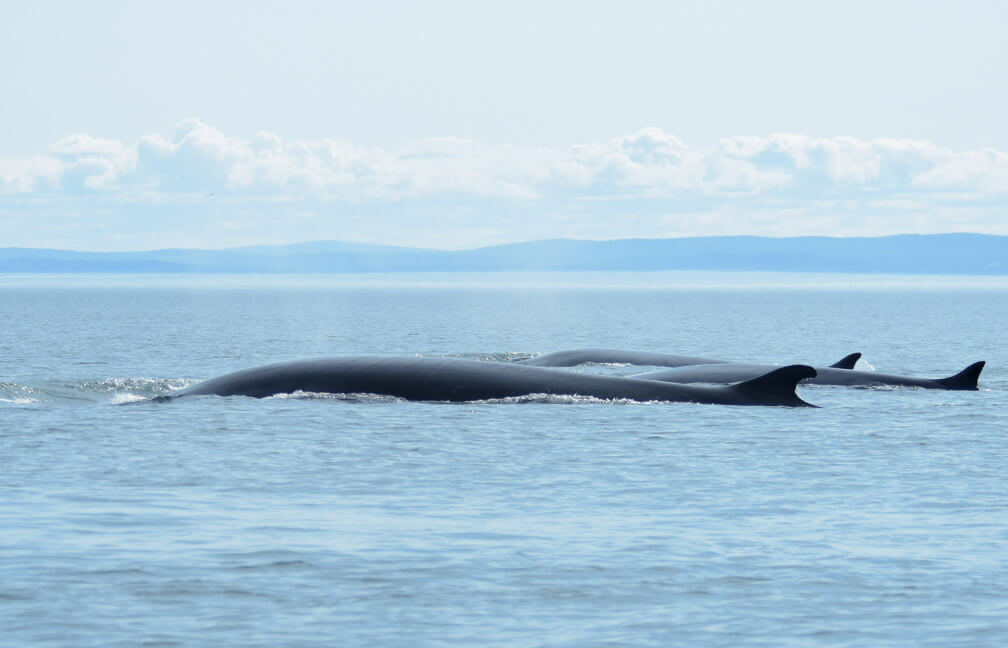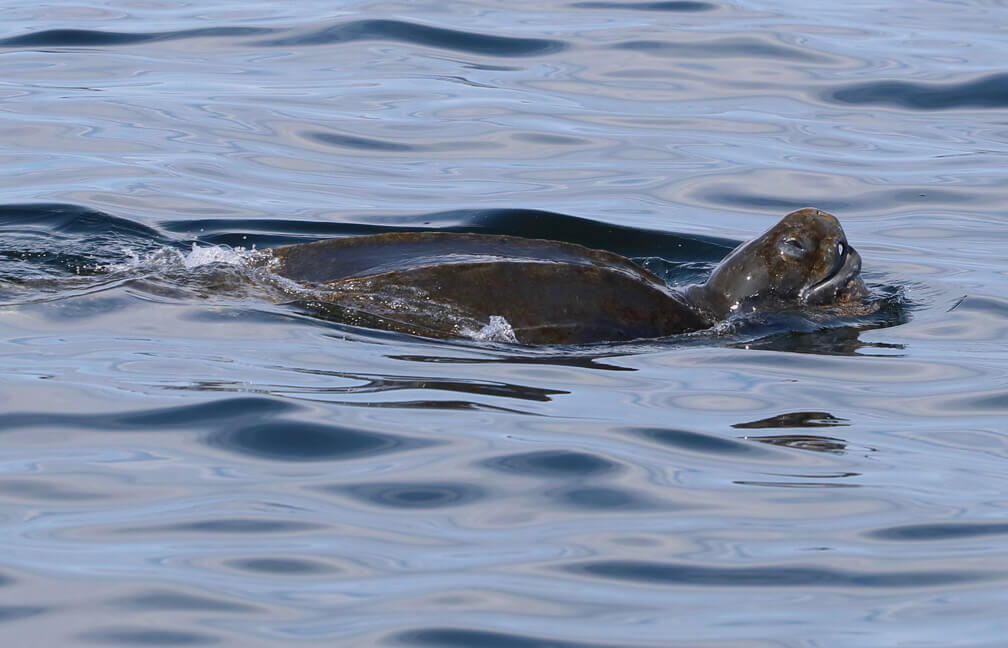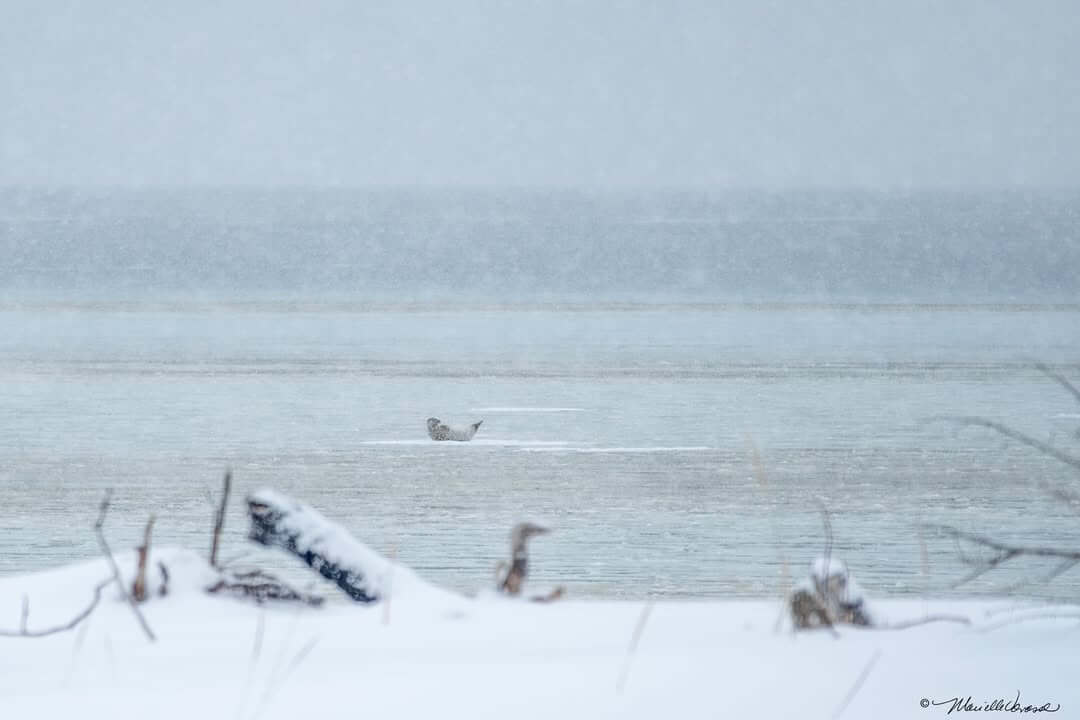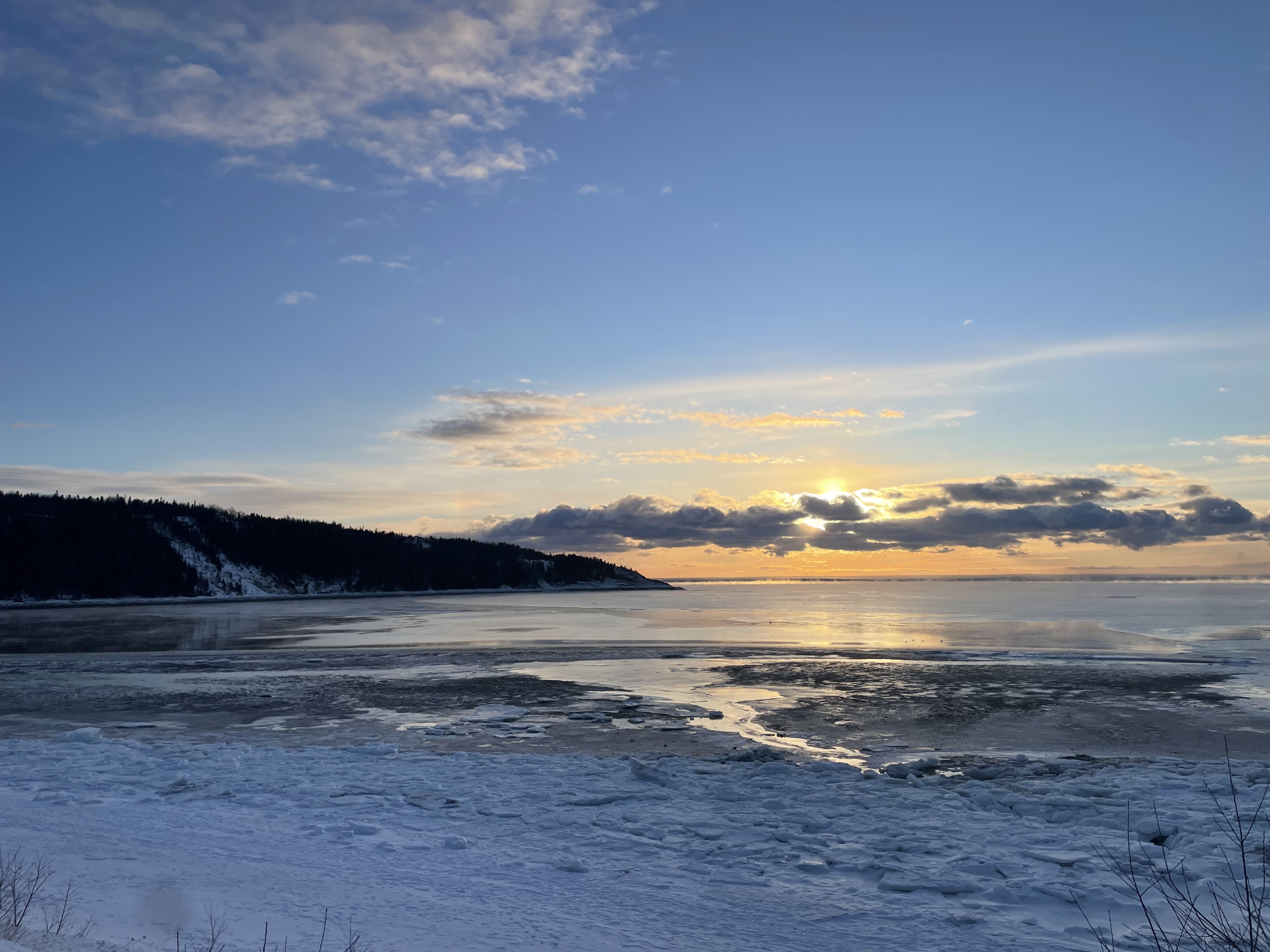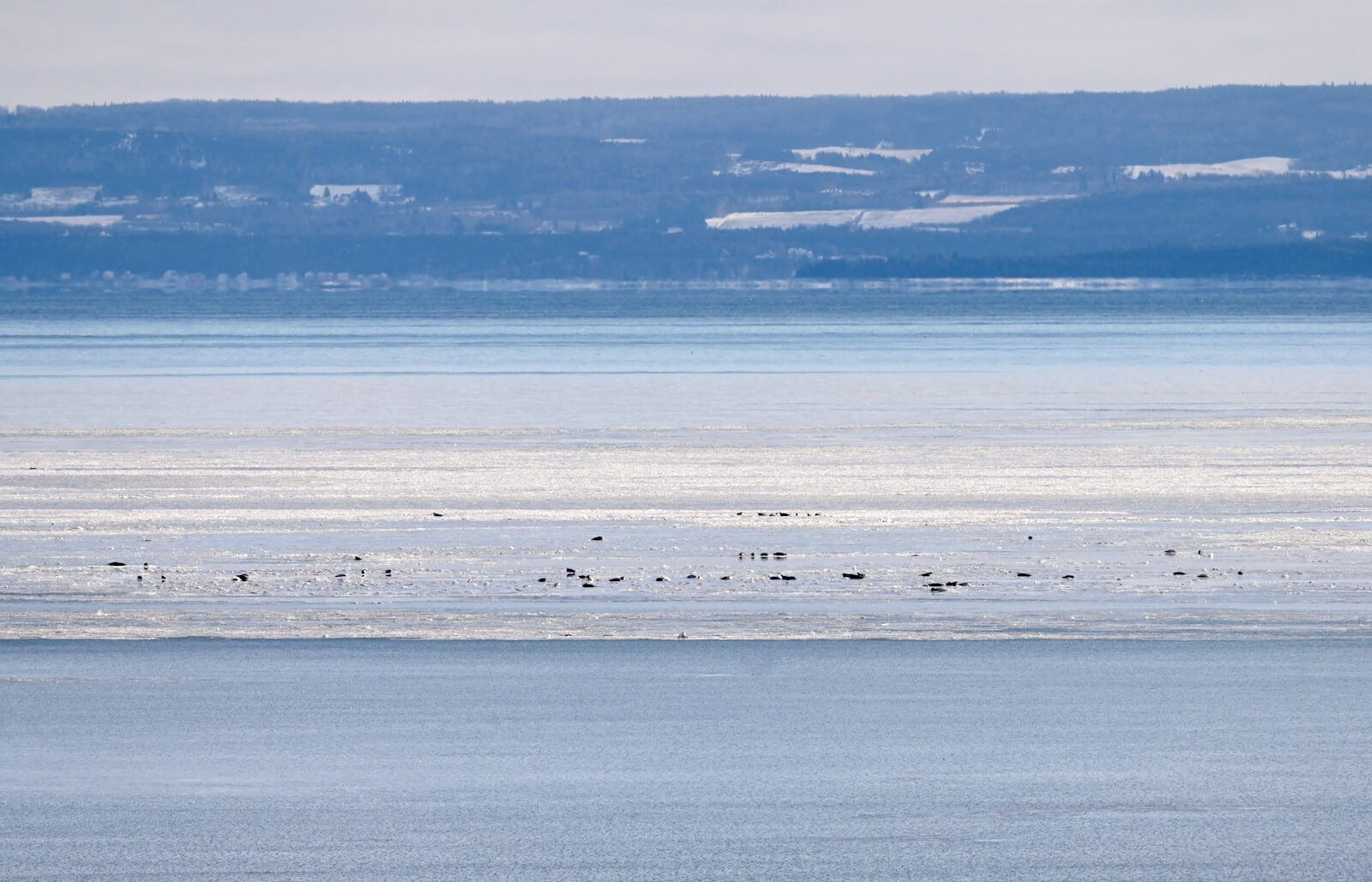August 7: At the lookout in Baie Sainte-Marguerite in the Saguenay Fjord National Park, a naturalist scans the bay for belugas. She hasn’t seen a single one in four days. The presence of these white whales in the bay is not constant. Between 2003 and 2016, Parks Canada observers noted that belugas were present in the bay 66% of the days (in French) they were on duty in July and August. When observing wildlife, the presence of animals is never guaranteed. She is just about to put down her binoculars when a movement on the surface catches her eye. It’s not a white back she sees, but the black one of a minke whale! This animal is feeding at the surface. It’s not every day that one observes minke whales this far up the Saguenay!
It’s not often that one goes weeks without a sighting, but it does happen. An observer in Havre-Saint-Pierre gazes out over the sea in search of whales, but to no avail.
Sometimes there are days when the weather is not conducive for research. Too much wind, strong waves, thunderstorms or heavy rains can cancel a day’s activities or force them to end earlier than planned. Other times, all the stars are aligned for a productive day, such as August 11, when the Mingan Island Cetacean Study team was able to launch and fly its drone as it continued its project on entanglements. That day, the team identified four humpbacks, including Jigsaw, and nine fin whales. They also note the presence of minke whales and porpoises in the same feeding area.
Now here’s a rare occurrence: crossing paths with a leatherback sea turtle! Off the coast of Cap-des-Rosiers, René Roy photographed the largest reptile on the planet. This turtle species can travel up to 18,000 kilometres in a single year. Even if it is not a marine mammal, sightings of this endangered species should be reported to the Quebec Marine Mammal Emergency Response Network at 1-877-7baleine, in order to document its presence and lower the risk that it might get itself entangled. Leatherbacks return to land only to lay their eggs on tropical and subtropical beaches, so they should not be found on Canadian soil. René Roy has also been snapping pictures of white-sided dolphins, blue whales, fin whales and humpbacks during his stay in the Gaspé Peninsula. You can read more about his encounters in his field notes (in French).
On the Gaspé Bay side, the number of individuals observed has dropped off in recent days, but species diversity remains: minke whales, porpoises, humpbacks, fin whales and blue whales delight observers. Have some of the individuals observed in previous weeks now moved on to the Estuary? Perhaps, as GREMM has identified seven different humpback whales in the Saguenay-St. Lawrence Marine Park. Fin whales, minke whales, porpoises and belugas are also a treat for observers in the area.
Here is the map of observations reported this week. It gives an idea of the presence of whales and does not at all represent the actual distribution of whales in the St. Lawrence. Use it for fun!
Click on the whale or the seal icon to find out more about the corresponding observation (specie, number of individuals, info, pictures). To enlarge the map, click on the top right corner icon.
To see the list of the observations, click on the top left corner.
This map represents an order of magnitude rather than a comprehensive survey.
Legend for the whales
Dark grey: Fin Whale
Black: Right Whale
Turquoise: Humpback Whale
Dark blue: Blue Whale
Light grey: Minke Whale
Yellow: Unknown species
Legend for the dolphins
Light grey: Beluga
Brown: Harbour Porpoise
Legend for the seals
Grey: Grey Seal
Brown: Harp Seal
Turquoise: Harbour Seal


